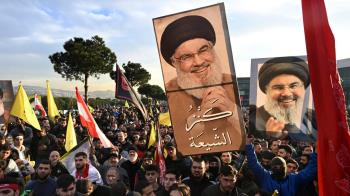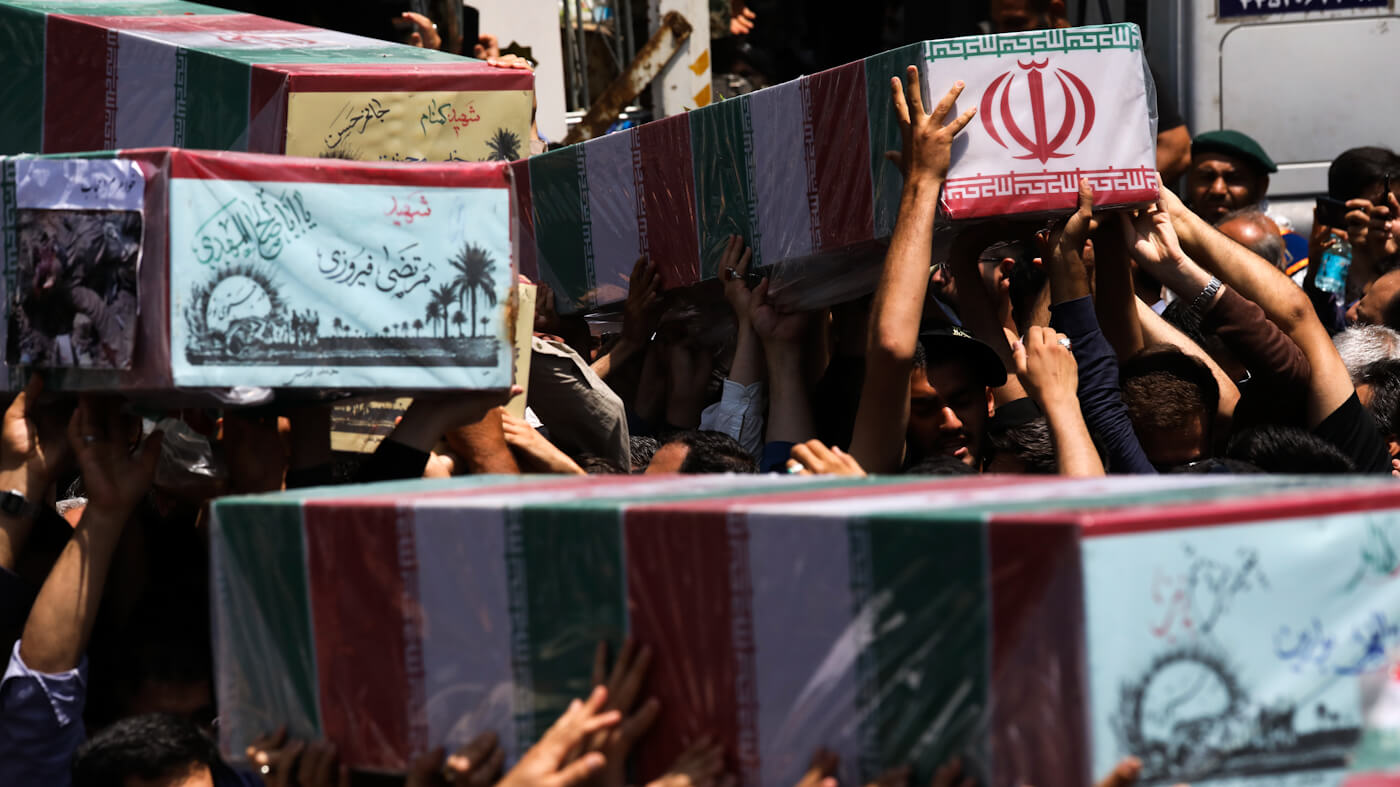If one can learn anything from the modern history of Iran, it’s that great powers will sell — and have sold — them out at a moment’s notice.
If one can learn anything from the modern history of Iran, it’s that Iranians have learned to rely on themselves and not on great powers for support and that these great powers will sell — and have in fact sold — them out at a moment’s notice to satisfy their own interests, a matter well ingrained in Iranian consciousness.
Iran has seen its fair share of the damage imperialism has inflicted on the world — joint Russian and British control over Iran during the Qajar era, then the killing of one fifth of the Iranian population between 1917-19 (as documented in Barry Rubin’s The Middle East: A Guide to Politics, Economics, Society and Culture, p. 508) from famine brought on by the confiscating of foodstuff by occupying British forces that had violated Iran’s neutrality in World War I. This was followed in WWII by a coup that ousted Reza Shah, the then-king of Iran, also at a time when Iran had declared neutrality, in a British coup that put his son Mohammad Reza Shah on the throne of the kingdom. We need not mention the joint American-British coup, in which hundreds were killed, that toppled the popular Mosaddegh government because of its nationalization of the Iranian oil industry (which would have damaged American and British interests in Iranian oil(.
The only time Iran saw an actual democratic movement succeed in giving power to the people that foreign powers were not able to abort was with the Islamic Revolution of 1979; and, even after that, the Americans, Europeans, and even Arab countries of the Persian Gulf aided Saddam Hussein in a war he instigated against Iran — providing him with arms and chemical weapons, as well as intelligence.
A lesson in wariness
Taking these historical events (and many more instances) into account, it is no wonder that Iranians would be very wary of any moves made by the United States and other global powers, namely those with a colonial track record. The Joint Comprehensive Plan of Action (JCPOA or Iran Nuclear Deal) could have very well marked a paradigm shift in relations with Iran, but instead, the Europeans did not abide by their commitments, and the Americans just up-and-left the agreement as soon as Trump got around to Iran. Not only that but, instead of abiding by their commitments, they’re trying to milk even more out of the deal — promising they’ll abide by their commitments if Iran offers more to an already done deal. What this means is they are being asked to add concessions in their ballistic missile program, much to the benefit of Arab Persian Gulf monarchies that are on a trend of increased militarization.
Which brings us to the region’s latest round of tensions.
Given the already-stated facts, one has to understand, first and foremost, that Iran is dealing with a number of countries that have a history of falsifying facts, not standing by their agreements, and going into war in order to secure their own economic interests at the expense of other peoples. One must not forget the Indian famine in WWII, caused by food being exported from India to Britain, killing more than 20 million Indians, in reference to which Churchill said: “I hate Indians. They are a beastly people with a beastly religion. The famine was their own fault for breeding like rabbits.”
Living in such a flammable neighborhood — where the United States and its allies recently occupied its neighbors to the east and west and built military bases — and with such historical baggage, it’s not far-fetched that Iran, being the region’s most stable country, would rather rely on deterrence and defensive capabilities to secure itself than give concessions that could damage its security to powers that can hardly be trusted to keep their own word, as their own history suggests.
A wise decision
Iran made a wise decision in its downing of the RQ-4 drone. Usually, the shooting down of military surveillance drones does not lead to military escalation, though it does lead to an increase in tension. By doing so, Tehran was successful in warning any aggressor — be it the United States or any other country, for that matter — that it is not willing to compromise on matters of security or national pride (though the U.S. claims the drone was flying above international waters — 8000 miles away from U.S. soil — the debris has since been recovered by Iranian authorities in Iranian waters).
The wisdom of this decision is that Iran delivered the intended message without causing any escalation — which doubtless would have been the outcome if it had downed a manned military plane that was also in its sites in the vicinity of the drone. It was a message that Trump had clearly received, and for which he expressed appreciation to Iranian authorities (although why he would bother to thank Iran if it was attacking a plane flying over “international waters” as he said is truly baffling).
In addition to that — although it had the legal right to shoot down the drone for flying over its airspace, which extends to 12 nautical miles from its borders — Iran also has the right to demand identification from any aircraft flying close to its territory. For more perspective, U.S. Air Defense Identification Zones extend 200 miles from the U.S. border and, as testified to by a former U.S. Air Force navigator, any unidentified drone flying that close to the U.S. border would most likely be shot down. The shooting down of this unidentified drone, even supposing the U.S.’s version of events were true, is perfectly warranted on Iran’s part, and does not allow the U.S. any measure of retaliation in “self-defense,” because no lives were lost in its downing.
Moreover, Iran clearly showed other countries what it was able to achieve independently through its reliance on its own capabilities. It downed the world’s leading military power’s aircraft for infringing on its airspace, and did so without hesitation because it sees itself as truly “sovereign.” Although the U.S. may threaten Iran with its military might and its presence in the region, Iran’s ballistic missile program has allowed it to turn that very strength into a weakness by having American bases, and 25,000 American troops, within targeting range.
A war with Iran would devastate the region. A war with Iran, Hezbollah, the Popular Mobilization Forces, and Ansarullah is in the interest of no one, and God only knows what other surprises Iran might have in store for conspiring Arab monarchies. The smart move would be to repair the JCPOA in order to avoid further escalation in the region.
Source: MintPress News
By: Karim Sharara



























